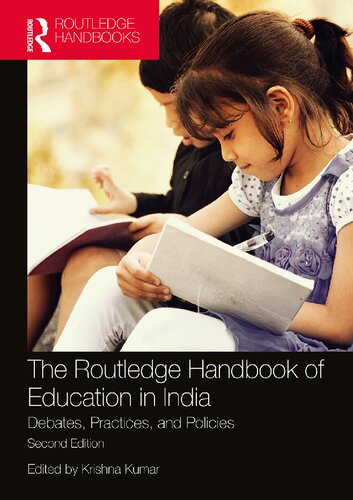

Most ebook files are in PDF format, so you can easily read them using various software such as Foxit Reader or directly on the Google Chrome browser.
Some ebook files are released by publishers in other formats such as .awz, .mobi, .epub, .fb2, etc. You may need to install specific software to read these formats on mobile/PC, such as Calibre.
Please read the tutorial at this link: https://ebookbell.com/faq
We offer FREE conversion to the popular formats you request; however, this may take some time. Therefore, right after payment, please email us, and we will try to provide the service as quickly as possible.
For some exceptional file formats or broken links (if any), please refrain from opening any disputes. Instead, email us first, and we will try to assist within a maximum of 6 hours.
EbookBell Team

4.0
56 reviewsThis comprehensive handbook introduces the reader to the education system in India in terms of its structural features, its relations with society and culture, and the debates that have shaped the present-day policy ethos.
The book provides an overview of major debates that have shaped India’s education systems, as well as the significant issues within higher and school education, education studies, and policies. Expert scholars provide a lucid analysis of complex themes such as the equity, access, and the quality of education. The volume also examines legal provisions and policies shaping the distribution structure and curricular issues in major areas of knowledge, as well as the provision of schools for the marginalised, economically weak, and people with disabilities. This new edition includes an analysis of the private sector’s participation in higher education and the technical and vocational education and training systems in India.
This handbook will serve as a valuable resource and guide to educators and public policy practitioners seeking information about India’s contemporary educational challenges. It will also be useful to scholars and researchers of education, public policy and administration, sociology, and political studies, as well as think-tanks, the media, policy-makers, and NGOs.